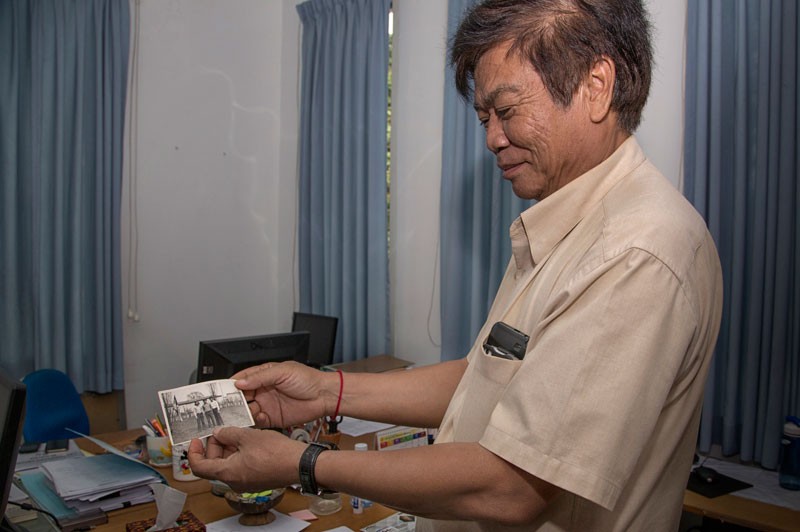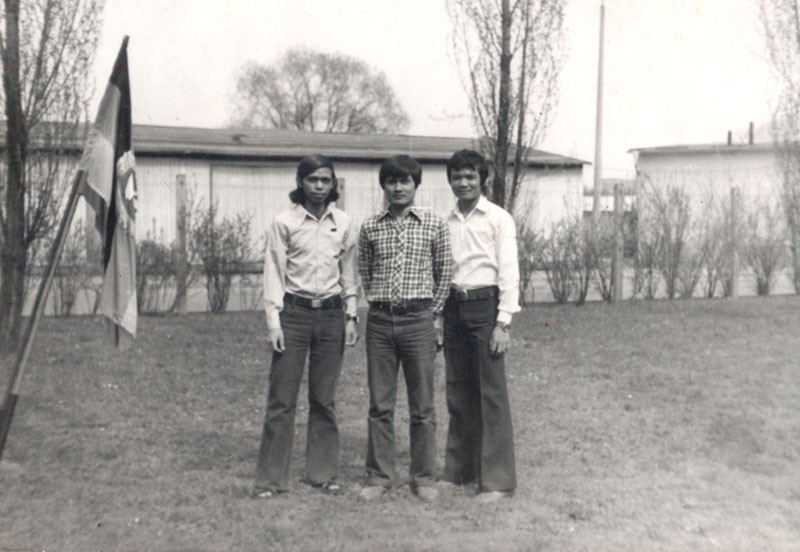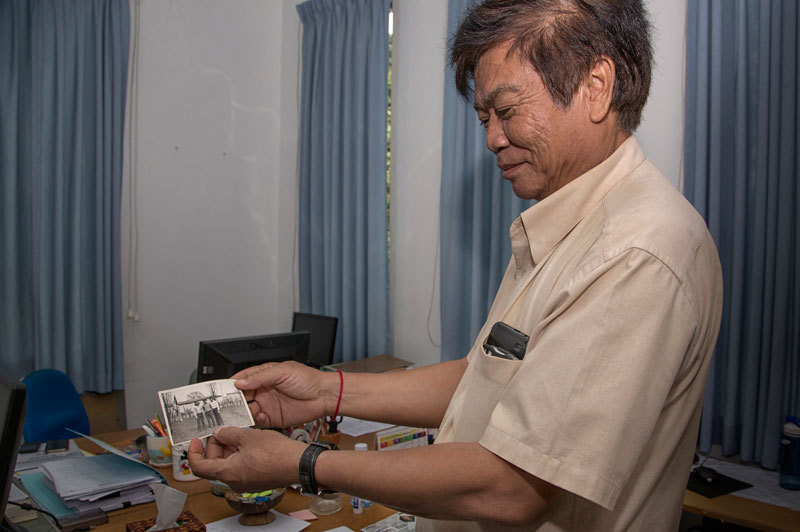As Cambodia was struggling to pick up the pieces in the years following the defeat of the Khmer Rouge, Ma Channat was selected by Phnom Penh’s socialist government to travel to East Germany in 1980 for a three-year vocational training program.
Along with about 4,000 other Cambodians who went to the German Democratic Republic (GDR) between 1980 and 1989, the idea was that Mr. Channat—who learned to be a technician in Leipzig—would return with crucial skills to literally help rebuild the country.

“We had just left hell and reached heaven,” Mr. Channat said of arriving in East Germany —still separated from West Germany by the Berlin Wall—in an interview that is part of an ongoing archival project highlighting Cambodia’s historical relationship with Germany.
The film is part of the series “Far Away From Angkor: Cambodians In East-Germany,” which was shown on Tuesday night at Meta House, with final versions set to be screened next month. At Tuesday’s event, clips from four of the films—shot by a local team of eight filmmakers, cameramen and translators—showed Cambodians telling their stories of living in East Germany decades ago.
In the films, Kannika Oeurn, who now works as a German teacher at the Goethe Institute in Phnom Penh and owns a auto body shop remembers fondly the friendliness of German people. Phou Samnang and Chhin Davin, now married, talk about meeting abroad, surrounded by beautiful snow.
Nicolaus Mesterharm—Meta House founder and the event’s organizer—said that 99 percent of Cambodians who lived in East Germany only have good things to say about it. But as a West German, he remembers things differently.
He recalls thousands of people being sent to prison and “hundreds of people dying right under my nose.” The lives of Germans on both sides of the wall were heavily controlled by their governments, leaving them unable to travel to the other side.
“It’s kind of surprising for us as West German citizens to admit how the GDR helped the people here. It was a more positive chapter of GDR history,” Mr. Mesterharm said.
“While West German government was looking away and holding the seat for Pol Pot, supporting the Americans and actually delivering weapons to the Khmer Rouge, East Germany did something very…vital,” he added.

Walter Rudeck, now 80, helped undertake this crucial work. The guest of honor at Tuesday’s event, Mr. Rudeck served as a state secretary vocational trainer for the GDR from 1980 to 1989.
According to Mr. Channat, now 58, it’s people like Mr. Rudeck who helped Germany form the close relationship it has with Cambodia today. In an interview on Tuesday, he said he felt very close to his German teachers, partly because they could relate to the brutality he experienced during the Khmer Rouge.
“The history is the same under Hitler as under Pol Pot,” he said. “The people knew that we were under Pol Pot regime and had not enough food to eat, that we worked very hard and suffered. My teacher said he had the same under Hitler.”
Now the President of Cambodian Associate of Prosthetics and Orthotics, which works to help amputees, Mr. Channat credits the GDR for setting him up for success.
“I came back to Cambodia to use my experience and my knowledge,” he said.




